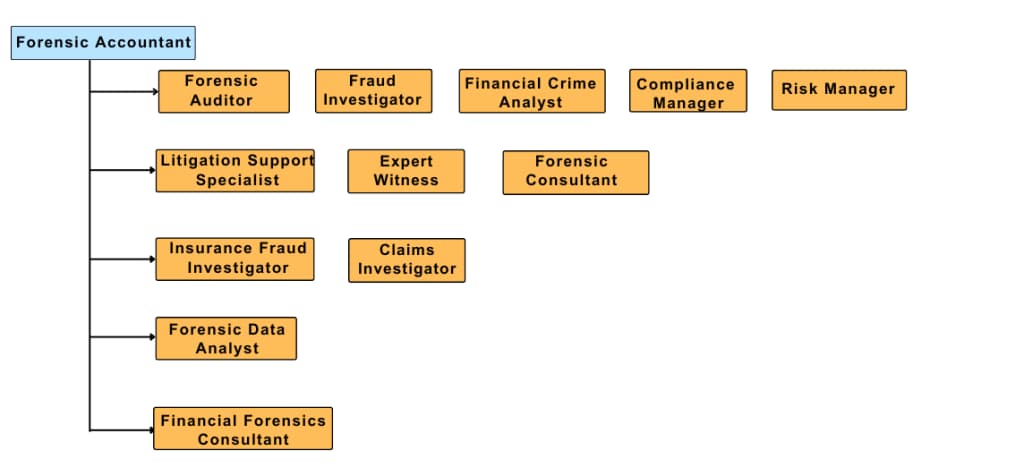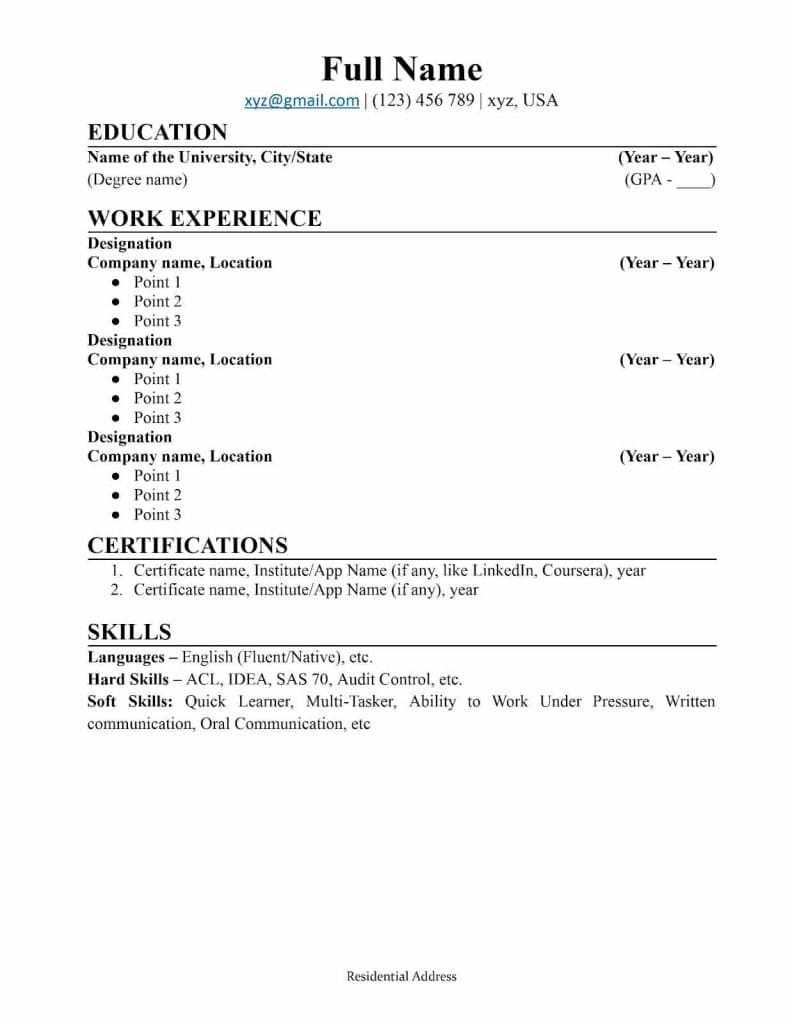As a forensic accountant, you will do more than crunch numbers. Accounting standards must be applied to solve legal difficulties, uncover fraud, and communicate complex financial information simply and sensibly.
As a forensic accountant, your analytical skills are not just a tool; they are the key to unlocking complex financial puzzles. Your ability to communicate effectively is equally crucial. Your prospective employer will be interested in your data examination methods, but equally important is your skill in translating complex financial data into simple, understandable terms. Remember, you’re not just a smart analyst; you’re a key player in making financial information accessible and sensible.
Lastly, being fully prepared for behavioral questions is not just a formality; it’s a demonstration of your readiness to face any challenge in the field. Forensic accounting often involves high-pressure situations, and employers will want to know how you handle stress, tight deadlines, and ethical dilemmas. Being well-prepared for these questions will not only show your readiness but also give you the confidence to handle them effectively.
Career Path as a Forensic Accountant

Resume Template

Interview Questions and Answers
General Questions with Answer
How many years have you worked as a forensic accountant?
You may start like this: “I have [years] of experience in a [related profession or job]. In my previous employment at [Company Name], where I worked from [Start Date] to [End Date], I was in charge of [explain your major tasks]. This includes [particular duties or initiatives], in which I [mentioned any accomplishments or outcomes]. This work allowed me to improve my abilities in [mention talents] and obtain useful insights into [mention relevant experience].
What makes you the best candidate for this role?
I would be an addition to your organization as a forensic accountant because of my excellent analytical abilities, attention to detail, and expertise in detecting financial irregularities. I am a specialist in sophisticated forensic procedures and technologies, with a track record of producing unambiguous findings for court cases. My commitment to ethics and good communication skills allow me to collaborate effectively with a wide range of stakeholders. I am happy to add to your company’s forensic accounting expertise and assist in preserving clients’ financial interests.
Give an example of your greatest strength and your biggest weakness?
- My greatest strength is my analytical skills, which enable me to examine complicated financial data efficiently. In my former employment, for example, I discovered irregularities in expenditure accounting, averting future losses and discovering theft.
- My biggest weakness is that I need to be more detail-oriented, which slows me down. However, I’ve learned to establish time boundaries and prioritize important details, which has increased my productivity while maintaining accuracy.
Do you work better as a team member or a team leader?
I do well in both team leadership and team member roles. As a team member, I get to work closely with and learn from my elders, which furthers my professional development. As I assume a leadership position, I relish the chance to mentor and assist my group, enabling them to surpass their assignments and accomplish our shared objectives. Both positions are critical to an individual’s growth and the team’s success.
Questions About Experience and Background
Which accounting applications do you have experience with?
Mention particular programs like QuickBooks, SAP, Excel, and Xero when talking about your expertise with accounting tools during an interview, emphasizing the important tasks you completed with each. Stress your expertise, particularly with data analysis and automation tools like Excel. Provide a brief example of how you used these programs to increase productivity or accuracy in a prior position. Make a connection between your experience and the job criteria to demonstrate how your abilities will help the organization.
Have you ever prepared a case to present in court?
Yes, I have prepared a case for court. In my former position as a forensic accountant, I engaged in a fraud investigation in which my team discovered major financial irregularities. I researched and evaluated financial information, wrote extensive reports, and worked with legal counsel to ensure that our conclusions were presented simply and effectively. This experience taught me how to communicate complicated financial information in a way that non-accounting professionals can understand, as well as the necessity of accuracy and clarity in legal situations.
Which questions do you ask an employee who may be involved in suspicious activities?
When interrogating an employee suspected of suspicious behavior, use open-ended and objective inquiries to acquire information. Concentrate on their jobs, duties, and any strange actions or disparities they have discovered. Check their understanding of corporate policies and inquire about access and control over pertinent systems. Inquire about any new changes or concerns that are affecting their job, as well as any specific abnormalities. Encourage them to offer any more pertinent information while maintaining an impartial and professional tone.
Which safeguards and procedures do you use to minimize the likelihood of errors?
To minimize as many risks as possible, I use different measures and policies While doing my work. First of all, I ensure that there are adequate amounts of supervision, such as peer checking and the approval system. I use computers for accounting because they have mechanisms that can notify me in the event of an error. Maintenance of accuracy is also achieved occasionally through practices like auditing and reconciliation of the accounts. Moreover, I have to attend training programs from time to time in order to refresh myself on matters concerning the prevailing accounting standards and practices.
Do you prefer investigating cases alone or as part of a team?
In investigation, I am a team player because the cases that are set for investigation are normally complex. People collaborate because one person will solve it differently from the other, and therefore, we get diverse and comprehensive results. So, there is the sharing of ideas and probabilities; hence, an extensive study is being done through the cooperation of the different participants. However, I am also very comfortable with individual work since there are occasions when the case requires a personal approach and confidentiality.
Questions Based on Behavioral and Situational
- Can you describe a time when you encountered a challenging ethical dilemma in your work as a forensic accountant? How did you approach and resolve it?
- Can you give an example of a time when you had to work under pressure to meet a tight deadline? How did you manage your time and ensure accuracy in your work?
- Describe a situation where you had to work collaboratively with a team to solve a complex financial investigation. How did you contribute to the team’s success?
- Supposing that you work in a company that has some issues connected with money laundering, what steps would you take to conduct a comparative analysis, and what tools would you employ to find the irregularities or frauds?
STAR Interview Questions
- Could you please provide an experience of when you were on the receiving end as a forensic accountant investigating a case of fraud? What was specifically expected of you, and what measures did you take to look for evidence of fraud? What were the outcomes of your probe?
- What measures have you taken in regard to the investigation, and what was the outcome of that strategy?
- Have you ever had to be an expert witness in a financial case? It is essential to understand the situation that resulted in the testimony you provided today. Please explain. What role did you play as an expert witness, and what was the result of the case?
- Do you have a case where you implemented your forensic accounting knowledge to recognize fraud in an organization’s financial records? The following are actions taken to investigate and the results obtained. In what manner did the results you obtained influence the organization?
- Explain an instance in which you assisted a client in regaining their lost money due to embezzlement or fraud. What was the situation, and how did you handle it in terms of recovering the stock assets? What action did you take, and what were the firm’s achievements for the client?
Hard and Soft Skills for a Forensic Accountant
| Technical/Hard Skills | Soft Skills |
| Auditing Tools & Techniques: ACL, IDEA, SAS 70, Audit Control Language (ACL) Investigation Skills: Forensic Data Analysis, E-Discovery, Fraud Detection, Anti-Money Laundering Technical Skills: Microsoft Office (Expert), QuickBooks, Oracle Financials Accounting Standards: GAAP, GAAS, SOX, IFRS Knowledge-based skills: Financial analysis and auditing, accounting principles and regulations, legal and regulatory frameworks, interpreting complex financial data, and presenting findings | Critical/Strategic thinking Effective oral communicator Effective written communication Positive criminal mind (Think like the wrongdoer) Strong ethical and professional conduct Creative Thinking and Problem Solving Analytical skills |
Top Platforms for Forensic Accounting Job Opportunities
The employment opportunities of forensic accountants include the public sector, private sector, and the nonprofit sector.
Some of the most common employers for forensic accountants are:
- Government departments like the FBI, CIA, and IRS, and state and local government
- Law firms
- Accounting firms
- Throughout banking, brokerage, insurance, and other industries associated with the provision of financial services.
- Corporative safety and security and other similar professionals and business organizations
- Financial consulting firms
If you are determined to be a forensic accountant, first of all, decide what kind of employer is more suitable for you. Indeed, the most effective source of such vacancies is a direct search on the organization’s official site. Some other resources include the ACFE Job Board, the AICPA career center, and USA Jobs, which is a federal government jobs site.
In addition to job experience, you should consider joining professional organizations such as the American Institute of CPAs (AICPA) and the Association of Certified Fraud Examiners, which offer continuing education, networking opportunities, and career help.
Work Environment for Forensic Accountants
Forensic accountants usually work using computers and phones in airy, well-maintained office spaces. Although they spend a lot of time at the office, they occasionally have to go to clients’ places or the workplaces of people who are being investigated.
Crucial Elements of Criminal Justice:
1. Work Environment:–
- Office Setting: Most forensic accountants operate out of spotless, well-kept workspaces.
- Technology Use: A lot of computers and communication equipment are used in their activities.
2. Work Nature:-
- Trial Readiness: They are frequently employed to help clients prepare for court cases, which may require intricate financial reporting and analysis.
- Travel: On occasion, they must travel to client offices or other sites that are pertinent to the inquiry.
3. Pressure and Work Hours:–
- Standard Hours: Forensic accountants often put about 40 hours each week at work.
- Extended Hours: They typically work past regular hours due to the pressures of trial preparation and strict deadlines.
4. Expert Testimony:–
- Courtroom Experience: They could have to provide expert witness testimony in court.
- Handling Pressure: Forensic accountants need to maintain composure and confidence in the face of rigorous examination from opposing counsel.
- Strict Cross-Examination: They must be prepared for tough questioning that will cast doubt on their conclusions and methods.
A forensic accountant’s job description generally combines customer engagement, in-depth financial work, and the capacity to function under pressure—especially during judicial procedures.
Summary
You can see that being a forensic accountant calls for a special combination of investigative abilities, financial knowledge, and a strong sense of fairness. You may start a fulfilling profession that combines your love of numbers with the excitement of deciphering financial puzzles if you have the appropriate training, credentials, and personal attributes. Maintaining financial integrity and prosecuting criminals are critical tasks for forensic accountants in the fast-paced corporate environment of the United States. Seeking a job in forensic accounting might be an interesting opportunity if you’re prepared to take on an investigative and financial role.
